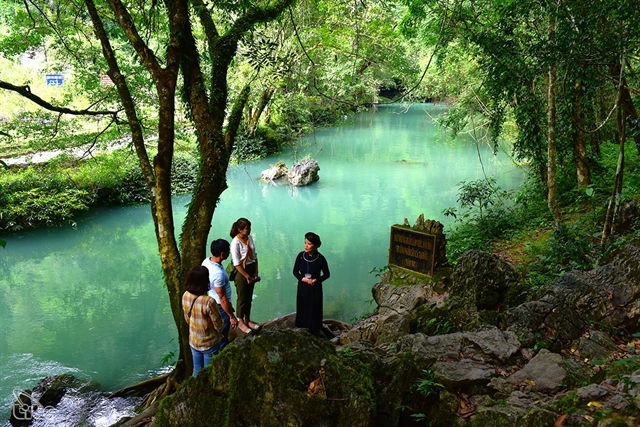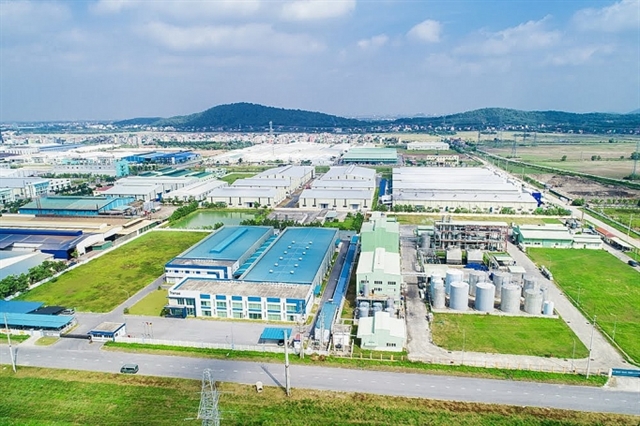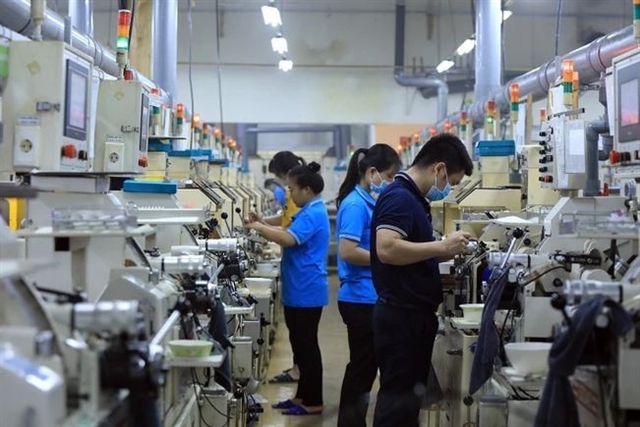 Society
Society
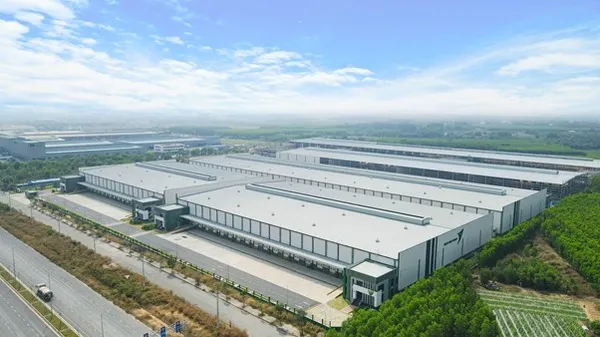
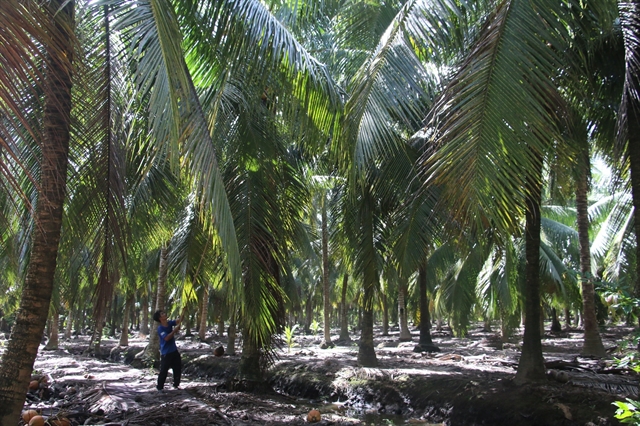
|
| An organic coconut grove in Bến Tre Province. – VNA/VNS Photo Hồng Đạt |
BẾN TRE – The intercropping of other crops in coconut groves in the Cửu Long (Mekong) Delta province of Bến Tre has helped farmers improve income amid a dramatic decline in the price of the nut.
The prices of mature coconuts in the country’s largest coconut-producing province have fallen to VNĐ20,000 – VNĐ25,000 per dozen due to weaker export demand, causing coconut farmers’ income to plummet.
Nguyễn Văn Hiệp has a 6,000 sq.m coconut grove in Giồng Trôm District’s Bình Thành Commune and his income from the nut has been reduced by two-thirds from before.
However, Hiệp has other income from growing elephant grass in the grove in order to breed five cows and earns about VNĐ50 million – VNĐ60 million (US$2,100 – US$2,600) a year from selling calves.
His coconut grove is small and if he grows only coconuts, the income is not enough to cover his family’s expenses, he said, adding that the additional crop has helped stabilise his family’s income.
Other farmers have planted other crops and bred shrimp in coconut groves to increase income compared to growing only coconuts.
Trần Văn Tâm grows limes and grapefruits and breeds giant river prawns in his coconut grove in Giồng Trôm District’s Châu Bình Commune.
The income from intercropping is two to three times more compared to growing only coconut in a same area, he said.
It is possible to grow other plants between coconut trees as the trees are planted 7 – 8 metres away from each other, and the other plants help reduce wild grasses and maximise the use of land in coconut groves, he said.
Coconut farmers can only have a stable income when the price of coconuts is above VNĐ80,000 ($3.4) a dozen, he said.
“The additional income from intercropping plants and giant river prawns has helped farmers to increase income and stabilise lives,” he said.
The province has more than 77,000ha of coconuts, according to the province Department of Agriculture and Rural Development.
Coconut trees account for only about 30 per cent of farming land and 50 - 60 per cent of the amount of sunlight in coconut groves, so the groves have the potential for intercropping other crops, it said.
Huỳnh Quang Đức, deputy director of the department, said crops which are effectively intercropped in coconut farms include banana, green skin and pink flesh grapefruits, other citrus fruits, and fish and shrimp in grove ponds.
The intercropping of other crops in coconut groves offer farmers an income equal to when coconuts have a higher price, he said.
Organic farming
Bến Tre is strengthening developing coconut cultivation to organic standards under linkages among farmers, co-operatives and processing companies to meet export requirements.
It has developed more than 2,890ha of organic coconuts in the first half of the year, taking its total organic coconut area to 16,014ha, according to the department.
Most organic coconut areas are located in Giồng Trôm, Mỏ Cày Nam, Bình Đại, Thạnh Phú, Ba Tri and Mỏ Cày Bắc districts.
Đoàn Văn Đảnh, director of the department, said the department has co-operated with localities and eight processing companies to develop organic coconut areas for export.
The province’s organic coconut-related products have been diversified and exported to many markets.
Trần Quốc Ửng, chairman of the Thới Thạnh Agriculture Co-operative, said his co-operative is growing nearly 120ha of organic coconut and sells about 100,000 nuts to the Lương Qưới Coconut Co. Ltd a month.
The nuts are used to produce jam for export to the US, he said.
Farmers who grow organic coconuts are paid a price of VNĐ15,000 - VNĐ20,000 per dozen higher than normal coconuts, he said.
Đảnh said the department will co-operate with localities, processing companies and farmers associations at all levels to persuade farmers to grow more organic coconuts.
Farmers will be instructed on techniques for growing organic coconuts and making organic fertilisers from animal waste and agricultural byproducts, helping to reduce the production cost of growing organic coconuts.
The department will co-operate with relevant departments and localities to implement policies restructuring agriculture production, developing organic agriculture production and concentrating farming areas under value chains. VNS


